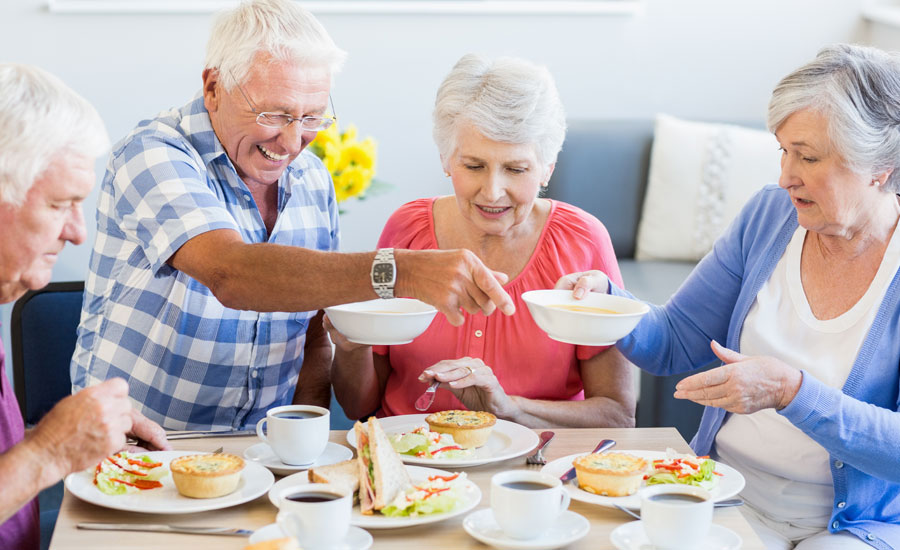How Care Homes Are Revolutionising Nutrition: What’s on the Menu?

The days of bland, repetitive meals in care homes are long gone. These days, care homes provide residents with nutritious, flavourful dishes adapted to individual tastes and needs. Whether locally sourced ingredients or special dietary options, homes can deliver meals that improve health and happiness.
What Nutrition and Meal Options Are Available in Residential Care Homes?
Meals in care homes are properly balanced and provide essential nutrients for maintaining the health of older people. Most homes offer multi-choice, customisable menus that accommodate specific tastes and requirements, including diabetic, gluten-free, vegetarian and heart-healthy options.
Hydration is also prioritised. Good care homes have hydration stations to encourage residents to drink water, herbal teas and other tasty beverages throughout the day.
Snack bars are fast becoming a staple in UK care homes, providing healthy snacks between meals, like fruit, nuts and sandwiches, ensuring residents have access to satiating, healthy options at any time of day.
Customised Nutrition in Care Homes
When it comes to meals in a care home, just like care plans, it’s all about personalisation. Everyone has their own tastes and needs, and the right care home will cater to every resident.
Whether your loved one needs low-sugar, diabetic-friendly meals, dairy-free dishes or a low-fat menu, a variety of options will be available to ensure they can enjoy their food while staying healthy.
It’s not just about what’s on the plate, though. Residents can choose where they’d like to eat, whether in a social dining room setting with friends or in the comfort of their room for a more relaxed experience. Care homes also respect cultural and religious food preferences, ensuring everyone feels included.
Building Connections at the Table
What’s better than delicious food and good conversation? Meals in care homes are more than just about eating – they’re a chance for residents to come together, chat and enjoy each other’s company.
Communal dining rooms create a welcoming, social environment where your loved one can catch up with fellow residents and connect over a good meal of their choice, including wine, beer or tea.
Care homes often go the extra mile by organising Sunday roasts, BBQs or birthday and Christmas dinners to keep things fun and fresh. Whether it’s breakfast, lunch or dinner, mealtimes are an important component of creating a sense of community, ensuring residents’ social needs are met while they enjoy highly nourishing, tasty food.
The Importance of Nutrition in Elderly Care
Good nutrition maintains health and well-being, which is especially important as we age. Carefully prepared balanced meals support energy levels and immune systems, keeping residents’ bodies strong.
Diet is also linked to cognitive function, helping residents stay mentally sharp and focused. Care homes ensure meals are packed with the right nutrients to support brain health, including quality meat, fatty fish, fresh seasonal fruit and vegetables.
Thanks to daily nourishing food, residents can preserve physical strength, mental clarity and overall well-being, so they can enjoy a healthier, happier lifestyle.
Innovations in Care Home Dining
Most modern residential care homes are stepping up their game when it comes to dining, making mealtimes an exciting part of the day. Here are some of the ways they do this:
Fresh, local ingredients – Care homes are increasingly using locally sourced ingredients to provide meals that are nutritious, fresh and full of flavour.
Farm-to-table approach – Many homes are moving toward seasonal, farm-to-table dining, ensuring residents enjoy meals made with the freshest, most vibrant ingredients.
Resident involvement – Some care homes involve residents in planning menus or even growing vegetables in communal gardens, making mealtime more engaging.
Personalised nutrition – A good care home will liaise with NHS dietitians and nutritionists to create custom meals that meet individual health needs.
Meaningful dining experiences – The focus is shifting from simply providing meals. From breakfast to supper, carers create a dining experience that residents can look forward to daily.
Nutritious Meals, Happy Residents
With a focus on fresh ingredients, resident involvement and tailored care, dining in care homes is an experience residents thoroughly enjoy. It’s all about supporting health while making mealtimes a social highlight of the day.
Ready to explore...
